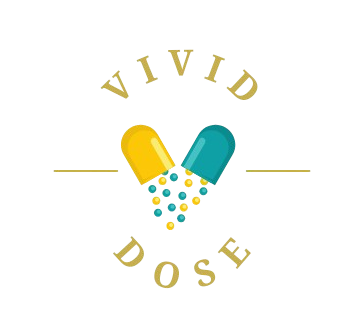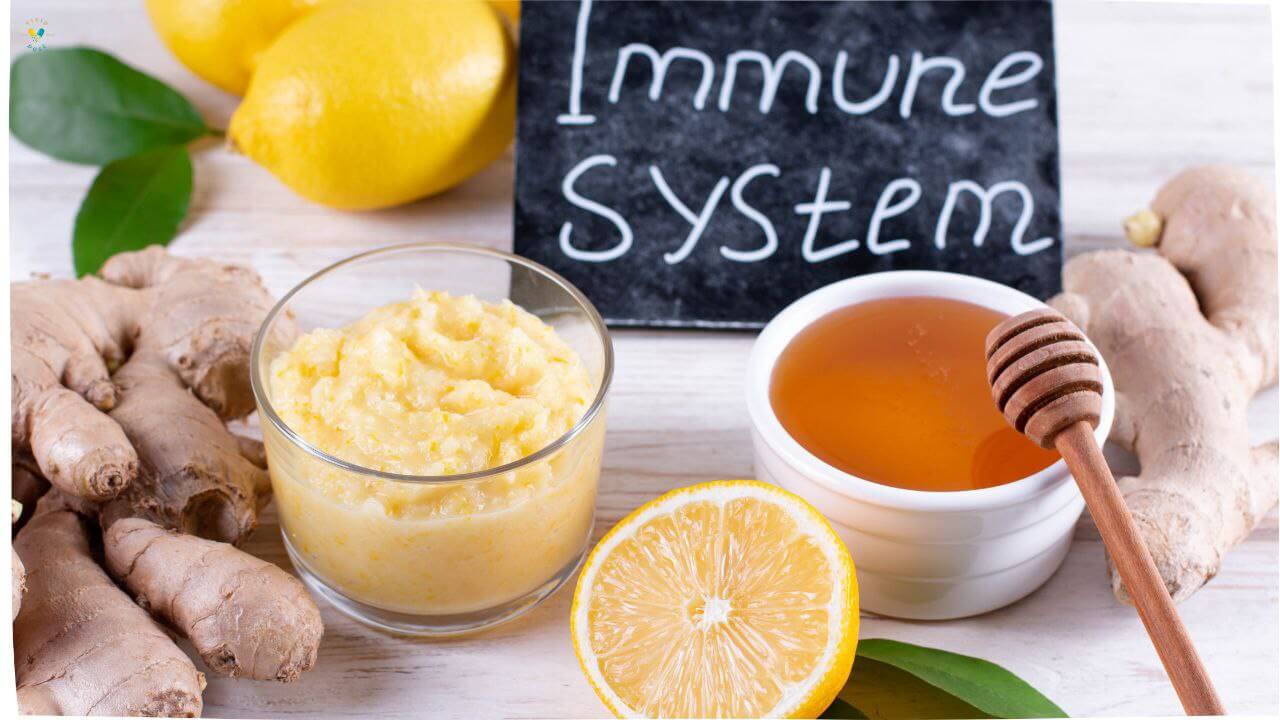7 Ways to Naturally Boost Your Immune System Every Day
Your immune system is a complex and powerful network, not a single entity, and supporting it requires a holistic approach.
Introduction
In a world where we’re constantly exposed to germs, stress, and environmental toxins, the question of how to boost the immune system is more relevant than ever. We often search for a magic pill or a quick fix, but the truth is, real immune system health is built through consistent, daily practices.
Think of this not as a strict regimen, but as a journey towards cultivating daily habits for the immune system that make you feel vibrant and protected from the inside out.
What is the Immune System?
Your immune system is your body’s sophisticated defence network against pathogens, which include viruses, bacteria, parasites, and other foreign invaders. It’s a remarkably intelligent system designed to identify “self” from “non-self” and neutralize any threats it encounters.
A well-functioning immune system doesn’t just fight off colds; it patrols for abnormal cell growth (like cancer cells) and helps heal wounds. Achieving immune system health means this entire system is balanced, it’s strong enough to fight off infections, but not so overactive that it triggers unnecessary inflammation or autoimmune reactions.
How the Immune System Works
The immune system operates through a layered defence strategy. The first layer is the innate immune system, which you are born with. It includes physical barriers like your skin and mucous membranes, as well as immune cells that launch a general, non-specific attack on invaders. This is your immediate, first-line defence.
If a pathogen gets past this initial barrier, the adaptive (or acquired) immune system kicks in. This system is more specialised; it “learns” to recognise specific pathogens after initial exposure. It creates antibodies and memory cells, which is why you typically only get sick from diseases like chickenpox once, and how vaccines work.
When we talk about ways to boost your immune system, we are supporting both of these critical layers to ensure they can mount a swift and effective response when needed.
The Two Sides of Immune Defense: Innate and Adaptive
To further clarify, it’s helpful to think of your immune defence in two parts. The innate system is your rapid-response team, always on patrol.
- It doesn’t care if it’s the flu virus or a splinter.
- Its job is to contain the threat immediately.
- The adaptive system, on the other hand, is your special forces.
- It takes a few days to mobilise, but once it does, it launches a highly precise attack.
- It remembers that specific pathogen for years, sometimes for life.
True immune system health isn’t about making one side “stronger” than the other; it’s about creating an internal environment where both systems can communicate effectively and function at their peak.
Now, let’s look at the 7 Ways to Naturally Boost Your Immune System Every Day

7 Ways to Naturally Boost Your Immune System Every Day
Building a stronger immune system is a marathon, not a sprint. It’s the product of the small, consistent choices you make each day. The following seven habits are the cornerstones of robust, long-lasting immunity.
1. Nourish Your Body with a Rainbow Diet
You truly are what you eat when it comes to your immune function. A diet rich in whole, nutrient-dense foods provides the essential vitamins, minerals, and antioxidants that your immune cells need to proliferate and function. Key nutrients like Vitamin C (found in citrus and bell peppers), Vitamin D (from sunlight and fatty fish), zinc (in legumes and nuts), and selenium (in Brazil nuts) act as cofactors for critical immune processes.
For instance, Vitamin C supports the barrier function of your skin and helps immune cells, such as phagocytes, do their job. Without these foundational nutrients, your immune system is like an army trying to fight without proper supplies.
One of the most effective habits to improve immunity is to consciously “eat the rainbow,” ensuring you get a wide variety of phytonutrients that support both your gut and your immune cells directly.
2. Get Your Body Moving with Regular Exercise
Regular, moderate physical activity is one of the most powerful pillars of immune system health. Exercise promotes good circulation, which allows the cells and substances of the immune system to move through the body freely and do their job efficiently. Studies have shown that consistent, moderate exercise can reduce the incidence of illness and infection.
For example, a brisk daily walk can improve the surveillance activity of immune cells, making them better at detecting and responding to pathogens. This is a key part of learning how to strengthen immunity naturally through movement.
It’s important to note that moderation is key. While regular exercise is beneficial, prolonged, high-intensity exercise without adequate recovery can temporarily suppress immune function. This is why a balanced approach is best. Aim for a mix of cardiovascular activities (like walking, cycling, or swimming), strength training, and flexibility exercises. The goal is to get your body moving most days of the week in a way that feels sustainable and energising, not draining.
3. Achieve and Maintain a Healthy Weight
Carrying excess body weight, particularly visceral fat around the abdomen, can have a significant impact on your immune system. Adipose (fat) tissue is not inert; it’s metabolically active and can produce pro-inflammatory chemicals. This state of chronic, low-grade inflammation can dysregulate immune function, making immune cells less effective at fighting pathogens and more likely to overreact.
Working towards a healthy weight is a profound way to boost your immune system by reducing this constant inflammatory burden on your body.
Achieving a healthy weight isn’t about crash diets, which can often be counterproductive and deprive your body of essential nutrients.
When you focus on nourishing your body and moving it regularly, a healthy weight usually becomes a natural byproduct.
4. Prioritize High-Quality Sleep
Never underestimate the power of sleep when it comes to your immunity. Sleep is not a passive state; it’s a critical period of active maintenance and repair for your entire body, including your immune system. During deep sleep, your body produces and distributes key immune cells like cytokines (which target infection and inflammation), T-cells, and interleukin-12.
When you are sleep-deprived, the production of these protective proteins decreases, and inflammation can increase. Research has consistently shown that people who don’t get enough quality sleep are more susceptible to getting sick after being exposed to a virus.
To truly harness sleep as a tool for a stronger immune system, both quantity and quality matter. Most adults need 7-8 hours of uninterrupted sleep per night. To improve your sleep quality, establish a consistent sleep schedule (even on weekends), create a dark, calm, and quiet sleeping environment, and avoid screens for at least an hour before bed.
5. Avoid an Unhealthy Lifestyle: Smoking and Excessive Alcohol
If you are looking for natural ways to boost immunity, one of the most impactful steps is to remove substances that directly suppress it. Smoking and excessive alcohol consumption are two of the biggest offenders. The hundreds of toxic chemicals in tobacco smoke can interfere with the normal function of immune cells, impairing their ability to respond to threats.
Smokers are known to have more severe and frequent respiratory infections. Similarly, the delicate, hair-like cilia in your airways that help sweep pathogens out can be paralysed by smoke, making it easier for germs to take hold.
Excessive alcohol consumption also wreaks havoc on the immune system. It can disrupt the gut microbiome, damage the lining of the lungs, and impair the function of immune cells in the bloodstream. Chronic heavy drinking is associated with an increased risk of pneumonia and other infectious diseases.
6. Actively Manage Your Stress Levels
While the previous point focused on physical toxins, stress is a potent psychological toxin for your immune system. Chronic stress, whether from work, relationships, or financial worries, leads to the sustained release of the hormone cortisol. In small, short bursts, cortisol can actually be anti-inflammatory.
However, when stress is constant, elevated cortisol levels begin to suppress immune function. It reduces the production of lymphocytes (the white blood cells that are front-line soldiers against infection) and interferes with communication between immune cells. This is why you might find you get sick during or after a particularly stressful period.
Taking rest and actively managing stress are not luxuries; they are essential daily habits for the immune system. This goes beyond just relaxing on the couch. It means incorporating active stress-reduction techniques into your routine. This could include mindfulness meditation, deep-breathing exercises, spending time in nature, practising yoga, or engaging in a hobby you love.
7. Be Proactive with Preventive Healthcare
A powerful habit for long-term immune system health is to be proactive. This means visiting your doctor or healthcare provider for routine check-ups, even when you feel perfectly healthy.
Regular screenings can help identify potential underlying health issues, like vitamin deficiencies, hormonal imbalances, or elevated blood sugar, that can subtly compromise your immune function over time.
Catching these issues early allows you to address them before they become bigger problems. This habit also includes staying up-to-date with recommended vaccinations, such as the annual flu shot.
Vaccines are a safe and effective way to “train” your adaptive immune system, providing it with a blueprint to fight specific pathogens without you having to get sick first. Think of your doctor as a strategic partner in your health journey.
Immune System Boosting Foods
While an overall healthy diet is paramount, certain foods are particularly potent allies for your immune system. Incorporating these into your meals regularly can give your defences an extra edge.
- Citrus Fruits (Grapefruit, Oranges, Lemons): Famous for their Vitamin C content, which is a key nutrient for the production and function of various immune cells.
- Red Bell Peppers: Surprisingly, they contain twice as much Vitamin C as citrus and are also a rich source of beta carotene.
- Broccoli: Packed with vitamins A, C, and E, as well as fibre and antioxidants. Steam it lightly to preserve its nutrients.
- Garlic: Contains allicin, a sulfur-containing compound that has been shown to boost the disease-fighting response of some types of white blood cells.
- Ginger: Has potent anti-inflammatory and antioxidant properties and may help decrease chronic inflammation.
Frequently Asked Questions
No, you cannot. The idea of a rapid “boost” is a misconception. Proper immune system health is about consistent support and balance, not a sudden supercharge. While some supplements or foods can provide temporary support, a resilient immune system is built over time through the daily habits discussed in this article, like sleep, nutrition, and stress management. Think of it as strengthening a muscle; it requires regular training and care.
It isn’t easy to choose just one, as they all work synergistically. However, if forced to pick, prioritising sleep might be the most fundamental. Sleep is when your body performs critical repair work, including producing and distributing essential immune cells. Without adequate sleep, other efforts like eating well and exercising become less effective, as your body is operating from a depleted state.
It’s always best to get your nutrients from whole foods first. However, some people may benefit from supplements, but you should always consult with a healthcare provider first. Common supplements for immune support include Vitamin D (as many people are deficient), Vitamin C, and Zinc. Remember, supplements are meant to supplement a healthy lifestyle, not replace it. High doses can be harmful, so professional guidance is crucial.
Final Dose
Building a stronger immune system is one of the most empowering things you can do for your long-term health and vitality.
Integrating these 7 Ways to Naturally Boost Your Immune System Every Day, you create a solid foundation that allows your body’s innate wisdom to thrive.
Remember, consistency trumps intensity. You don’t need to do everything at once.

